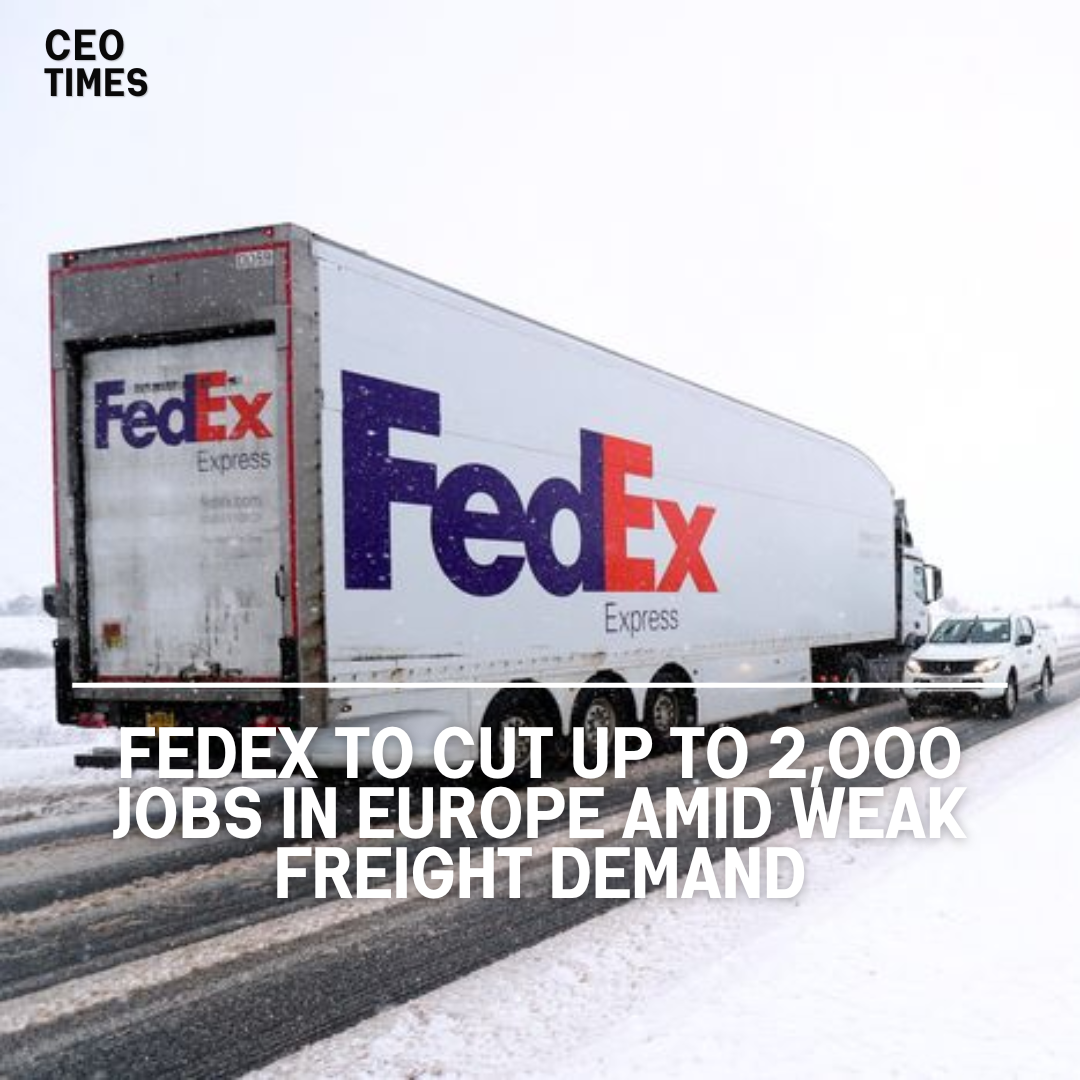FedEx has announced plans to cut between 1,700 and 2,000 back-office jobs across Europe as the company grapples with weak freight demand. The decision was revealed in a filing on Wednesday and marks a significant reduction in its workforce over the next 18 months.
Financial Impact and Costs:
The company anticipates incurring pre-tax costs ranging from $250 million to $375 million due to legal fees and severance benefits associated with the job cuts. This move is part of FedEx’s broader strategy to manage expenses and streamline operations in response to challenging market conditions.
By implementing these job cuts, FedEx aims to achieve annualized savings of between $125 million and $175 million, starting in fiscal year 2027. Cost-saving measures are expected to provide long-term financial benefits to the company.
Reasons for the Cuts:
The decision to decrease the workforce comes as FedEx faces soft freight demand and slow margin improvement within its largest air-based Express unit segment. To address these challenges, the company has initiated a comprehensive cost-cutting drive.
Long-Term Cost Reduction Goals:
Based in Memphis, FedEx is on track to eliminate $4 billion in permanent costs by the end of its 2025 financial year. This ambitious cost reduction goal underscores the company’s commitment to enhancing efficiency and maintaining financial stability amid a fluctuating economic landscape.

















